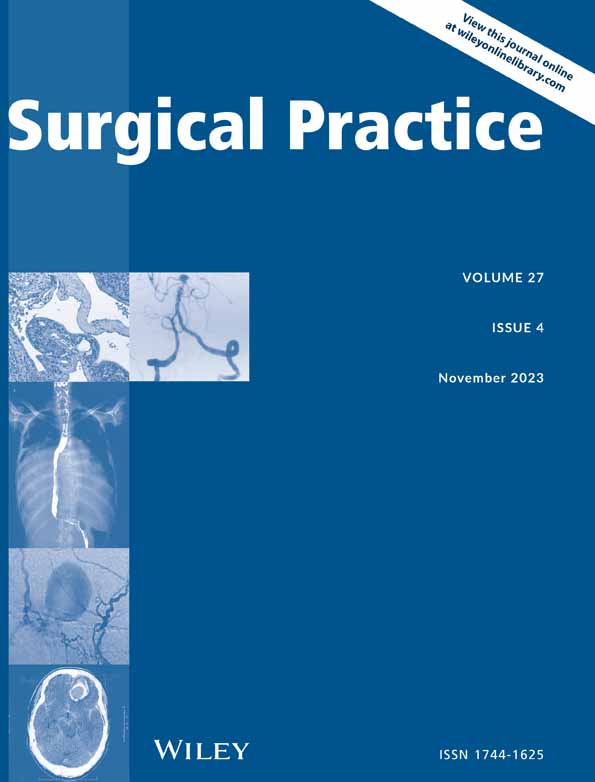The enhanced recovery after surgery program in elderly patients over 75 years of age undergoing elective colorectal cancer surgery
Abstract
Aim
The enhanced recovery after surgery (ERAS) program has been well established for patients undergoing colorectal surgery. However, there has been a lack of studies on its use for elderly patients. Our unit implemented the ERAS program in September 2018. The aim of this study is to evaluate the outcome of the ERAS program in patients over 75 years who are undergoing colorectal surgery.
Patients and Methods
In this retrospective study, we compared all patients aged 75 and above who were admitted to Queen Elizabeth Hospital for elective colorectal cancer surgery before the implementation of the ERAS program (1 January 2016 to 31 August 2018) with those treated after its implementation (1 April 2019 to March 2022). The primary end point was the post-operative length of stay. The secondary end points were wound infection, retention of urine, pneumonia, deep vein thrombosis, pulmonary embolism, use of total parenteral nutrition, acute coronary syndrome, blood transfusion, reoperation, in-hospital mortality, unplanned readmission within 28 days and Clinical Fragility Score.
Results
A total of 258 patients were included. The median length of stay was 8.4 days in the pre-ERAS group vs 6.8 days in the ERAS group. In-patient death (1.4% in the pre-ERAS group vs 0.9% in the ERAS group) and readmission rate (7.7% in the pre-ERAS group vs 12.2% in the ERAS group) were similar between the two groups. About 31.5% of patients in the pre-ERAS group had higher Clinical Fragility Scale post-operatively as compared with 7.8% in the ERAS group.
Conclusion
The ERAS program shortened the length of hospital stay by 1.6 days, and patients had lower Clinical Fragility Scale post-operatively. Adverse events were not increased. The ERAS program can be safely applied to elderly patients with colorectal cancer.
CONFLICT OF INTEREST STATEMENT
All authors declare that they have no conflicts of interest.




